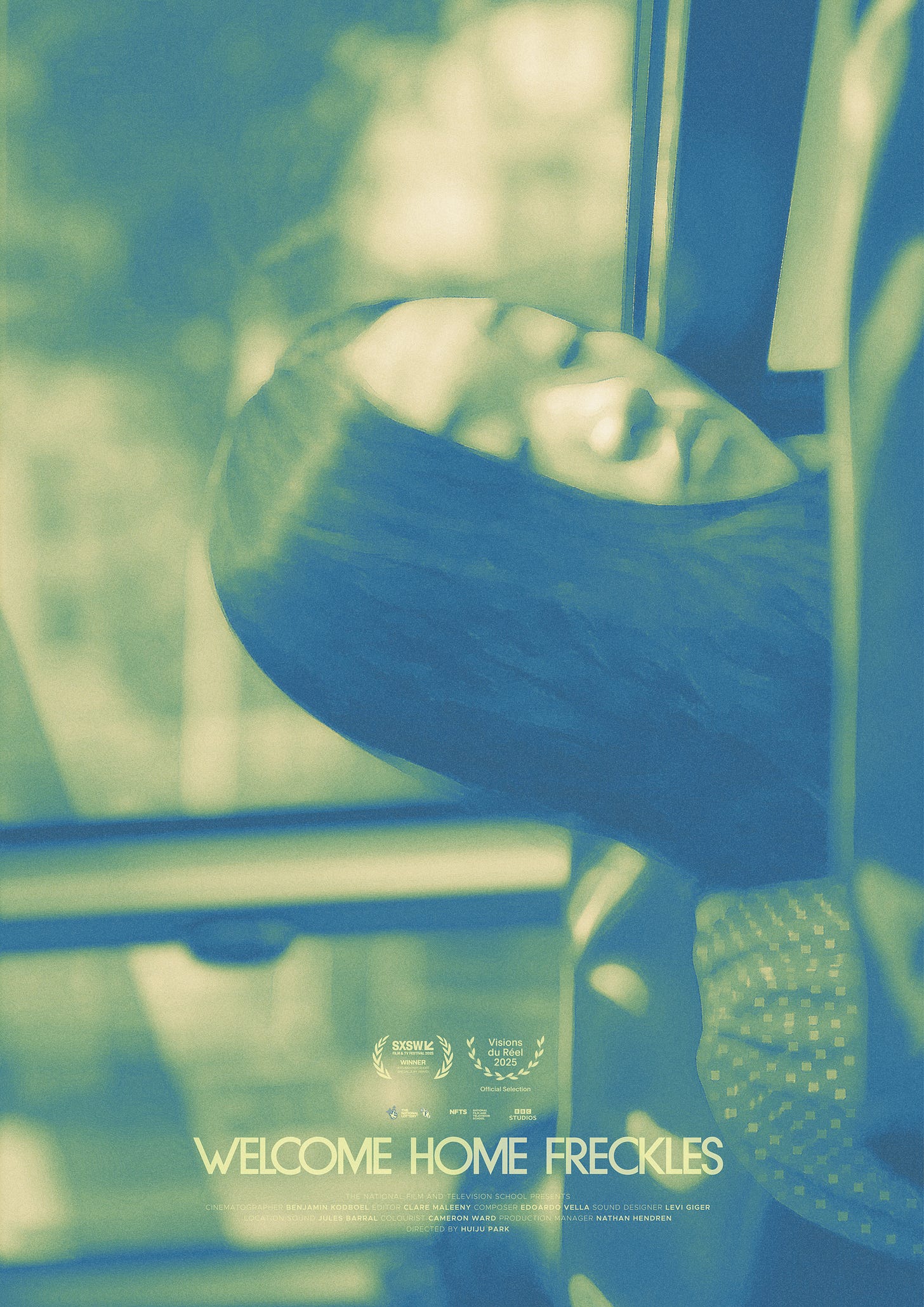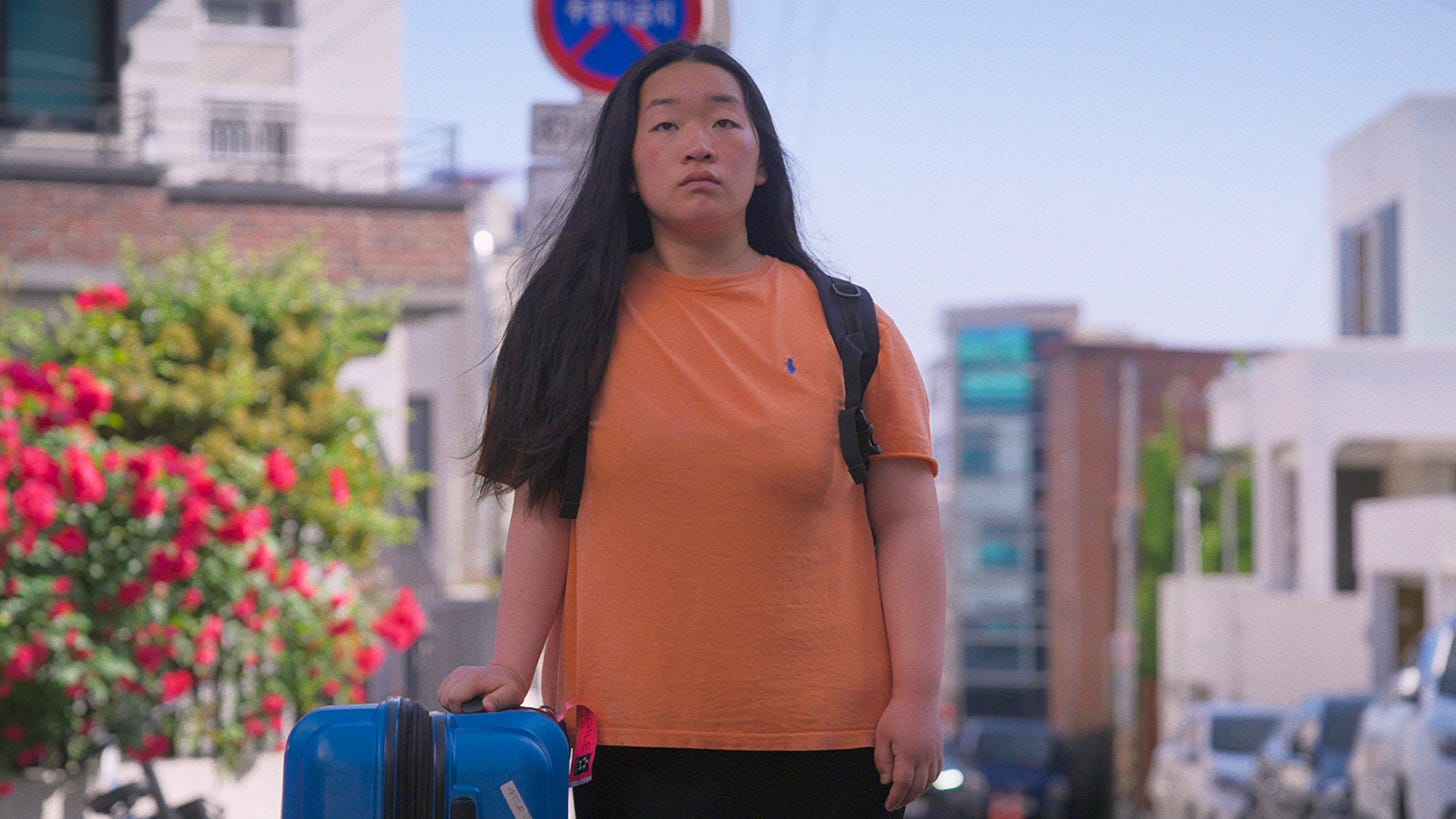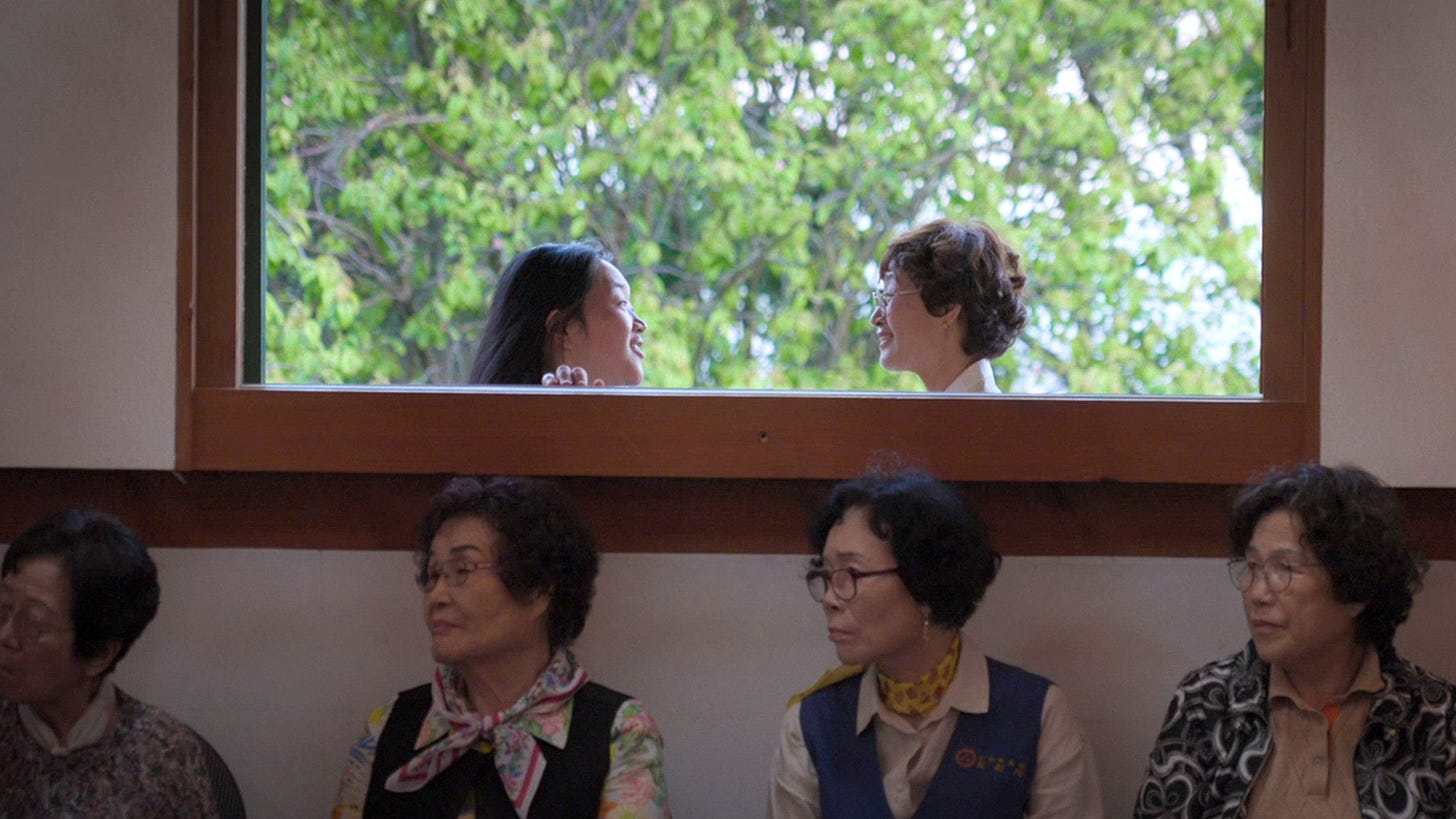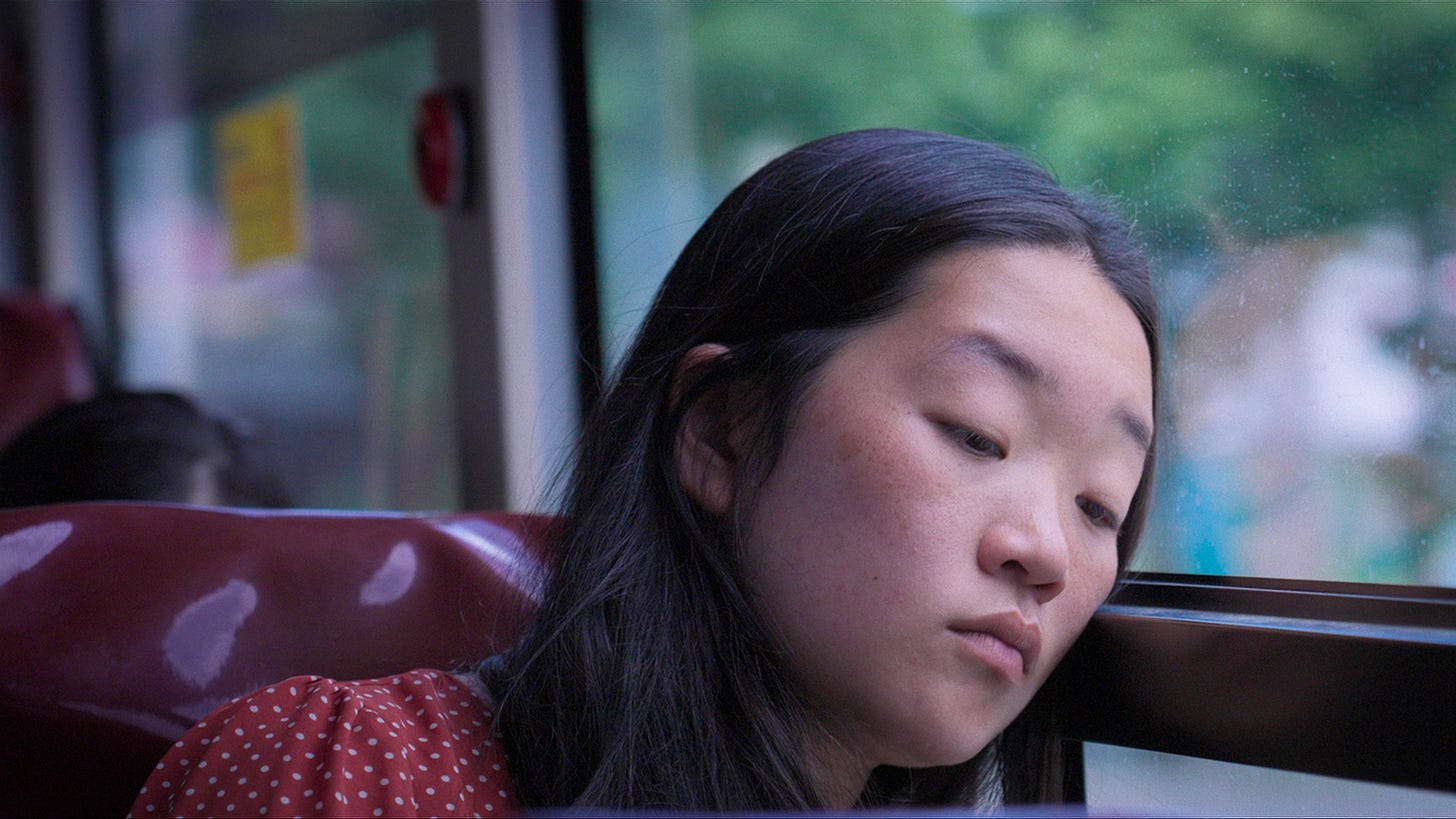Breaking the Cycle: SXSW Documentary Short Special Jury Award Winner Welcome Home Freckles By Huiju Park
Article By Brynne Norquist
Some films stay with you long after the credits roll, and Welcome Home Freckles is one of them. I first learned about the film at SXSW, where I hosted a networking breakfast for Hiike. That’s where I had the privilege of meeting the team behind Welcome Home Freckles. They had all traveled from London for the world premiere, and later that day, they won the SXSW Documentary Short Special Jury Award. Their success at the festival made me even more eager to see the film, and when I finally had the opportunity to watch it, I was deeply moved.
Huiju Park has always been drawn to feminism in her work, and Welcome Home Freckles is her third personal documentary. Using herself as the main character, she crafts a mirror for society—allowing the audience to reflect on their own experiences through her lens.
“I had this idea six years ago, but I knew I was not ready to make this film. The stakes were too high. It was the maximum ultimatum for myself and my family,” she shared.
At its core, Welcome Home Freckles is about domestic violence, alcoholism, and the cycles that persist through generations. Initially, Park set out to explore alcoholism, inspired by Adult Children of Alcoholic Parents, a book that helped her realize she wasn’t alone in her struggles. However, as the film developed, she recognized that the real story was not just about addiction—it was about her journey of understanding and confronting the impact of her family’s past.
As she returned to South Korea after four years away, Park discovered painful family secrets she had never heard before. She witnessed firsthand how trauma was passed down: “We’ve all made mistakes, but everyone had reasons. My mom was also abused, my dad was also abused, and my grandma was also abused by her husband. We were just repeating the pattern, but no one dared to cut the chain.”
Park became the first person in her family to go to college, a privilege she recognizes as the key factor in breaking the cycle. “I’m very privileged—I went to college, I was able to study, and I was able to make films. That kind of background really helped me to cut the cycle of domestic violence.”
Despite the deeply personal subject matter, Welcome Home Freckles is far from a conventional documentary. Park’s background in fiction filmmaking is evident in her meticulous planning and cinematic approach.
“I still use the fiction practical process—writing a treatment, planning everything. We don’t shoot much. Some people just let the camera roll and end up with 60 or 100 hours of rushes with nothing in them. That’s what I wanted to avoid.”
This careful preparation paid off. The film has an observational quality that makes it feel almost like a narrative film. There are no traditional interview setups—just natural conversations that unfold organically. “Talking heads are not really my goal in terms of what I want to make,” Park stated.
One of the most striking aspects of Welcome Home Freckles is its emotional depth. Park describes production as emotionally taxing: “The biggest challenge was taking care of myself. I cried a lot after every conversation with my family.”
The editing process was equally unconventional. Since Park was the only Korean on her team, her editor initially watched the footage without subtitles. “She just followed the facial expressions and body language. That’s how we got the cinematic sense.”
Watching Welcome Home Freckles is an intimate, almost voyeuristic experience. Park’s filmmaking allows the audience to sit in on conversations that would otherwise never be shared. One of the most heartbreaking moments comes in a discussion with her grandmother, who endured a lifetime of abuse. “If I didn’t have kids, I could fly far, far away on my own. But I had four kids, you can’t just leave them,” her grandmother laments. Yet, despite her suffering, her biggest regret is not sending her daughter to college. “My heart is full of regrets.”
These moments highlight a painful truth—many of the women in Park’s family were complicit in the cycle of abuse. At Park’s welcome home dinner in the film, a female family member tells her: “When you get married, as you grow older, you will see things differently. Eventually, you will understand and empathize with your parents.”
Park refuses to accept this. “It’s about right or wrong.”
Perhaps the most powerful scene comes near the end of the film when Park visits her grandfather’s grave. She confronts him directly, condemning the cycle of violence that has plagued her family for generations. “I would never be like you, your wife, my dad, or my mum. I would never be like any of you. That’s what I came here to tell you. I am different.”
And with that, she breaks the cycle.
Park describes herself as an introvert, so the festival experience at SXSW was both overwhelming and deeply rewarding. “I’m the biggest introvert in the world. But I was so grateful to meet a lot of the audience. People came up to me, holding my hand, saying ‘Oh my god, are you the daughter, are you the director?’ They shared their own struggles with their family. Some of them teared up, and they made me tear up as well. This is exactly what I wanted to communicate— share our experiences.”
At the SXSW awards ceremony, Park was completely caught off guard. “Literally, we were sitting at the Paramount Theater, watching other people accept their awards. I was telling my team, ‘Guys, smile more. We’re here to celebrate other people.’ And then we got the award!”
Despite the recognition, Park remains grounded. “As a filmmaker, film festivals and awards are not the biggest motivation for me to keep making films. I have to keep proving to myself that I am learning and growing. I don’t make films to get in to festivals. I don’t make films to take audiences’ money. Documentary films are the way I live my life.”
Welcome Home Freckles is a breathtaking film that transcends documentary filmmaking. It is a testament to the power of storytelling as a form of healing, a declaration of self-empowerment, and an act of defiance against generational trauma.
Park’s journey is one of resilience, of refusing to accept the status quo, and of breaking free from a painful past. “The one who gets hit never forgets. The one who hits, forgets.” But through her film, Park ensures that her story—and the stories of so many others—will never be forgotten.









